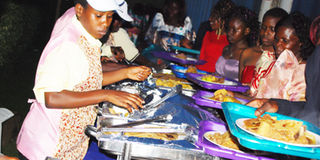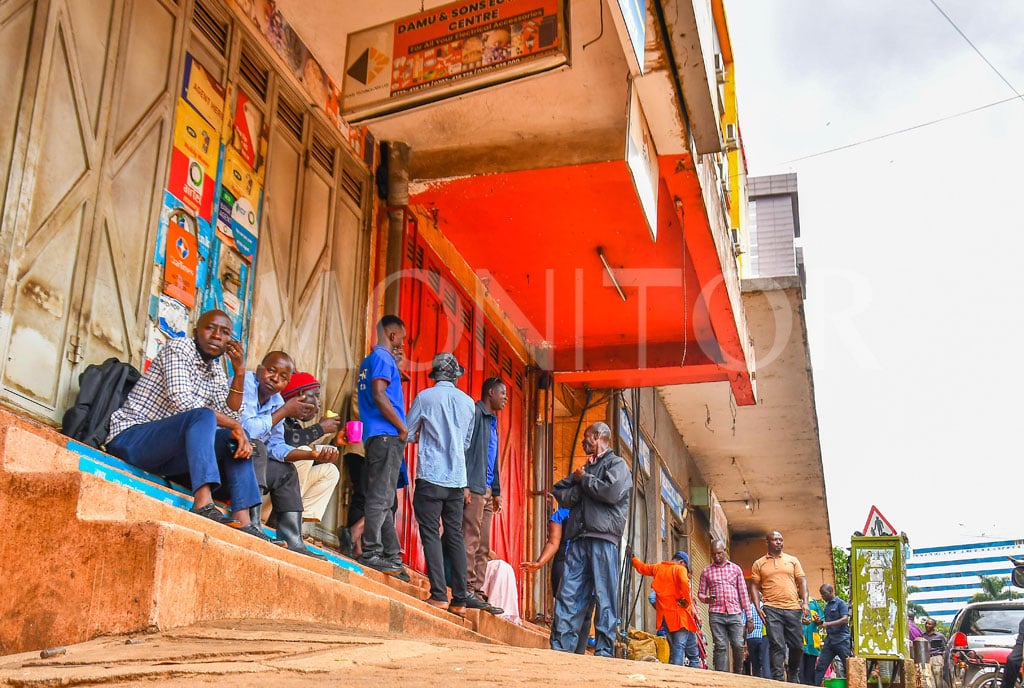RESTAURANT REVIEW: Make modest and befitting meals

Despite the high demand by service providers, try as much to make affordable meals. Courtesy Photo
What you need to know:
We used to have modest kwanjula catering services unlike today. Read on.
My kwanjula to Annette Nakalema Kiyimba in 1983 was a Spartan and austere event compared today’s. The early 80s were turbulent times in Uganda with little of the opulence and grandeur that obtains today. Mind you, we had to drive to Kimaanya in Masaka and I doubt whether my entourage comprised more than a score. The majority were first cousins and close relatives.
Kwanjula meetings were kept to the bare minimum and fundraising in the form of today was unheard of. To my way of thinking, close friends and family contributed and in an entirely voluntary manner. Also, coming from a prominent family being the scion of Sir Apollo Kaggwa and my distinguished father was certainly a plus. Even then, I was a person of modest means that allowed me the luxury of not being reduced to a beggar as is the wont of today’s youth planning nuptials.
I contributed the majority of the money for kwanjula and wedding. Incidentally, the venue for the wedding was the very prestigious Uganda Club and I don’t think we invited more than 150 guests.
The question of hiring a pick-up truck to carry an assortment of household goods ranging from washing machines, to cookers, furniture, refrigerators and the like was never in the offing. No chance of giving cars or livestock. Conspicuous waste and display and ostentatious habits were unknown at the time.
Naturally, the omutwalo (bride price) was de rigueur. The ekita (traditional gourd filled with local brew) as well as the mandatory rooster for the mukodomi and the busuutis for the maama and senga and kanzus for the omuko and taata. With a minimum of fuss and money, we got our chosen bride.
No hired caterers
There were no professional catering services at the time and the family coupled with, I imagine well wishers, cooked the food which turned out to memorable. Nowadays, kwanjula is a combination of show biz, razzmatazz, and keeping up with the Jones’s. Thus it came as great surprise and eye opener when I was invited to attend a close relative’s kwanjula which was largely organised by Omutaka Nakirembeka Engineer Alan Waliggo.
There were no hired spokesmen, no hired DJ, no hired decorators, no change of outfit and mercifully no singers (they mime and get paid a King’s ransom) and no dancing. By and large the function was private, traditional, conservative, basic, economical, simple, practical and memorable for its difference.
We were accommodated in only one tent set out in the spacious compound and were not privy to the discussions that were held in the privacy of the living room indoors.
While the discussions were taking place, we were given soft drinks and water as well as snacks and canapés. The ceremony lasted less than two hours, and horse trading was conducted amongst the bride and groom’s family without any third party’s intervention.
The crowd counts
The groom was restricted to an entourage of 13, and would you believe that the gifts were never shown to us and could fit into the trunk of a saloon car! Yes, these included the ekita, omutwalo, the standard busuutis and kanzus for the respective senga, maama, taata, mukodomi and close relatives. After successful negotiations, the bride and groom came out into the tent where we were and greeted all of us after which we were regaled to a modest and befitting meal.
Last but not least, after the food was served, and the bako had been seen off, the kasiki was held for close family friends and invitees of the bride – on the same kwanjula budget! The total cost for the event was probably not more than $1,000(Shs2.5m) and for those young couples who are thinking of getting hitched, take a leaf from this kwanjula and you will be amazed at ient, traditional, enjoyable, practical, time and cost-saving workable arrangement can be worked out.




